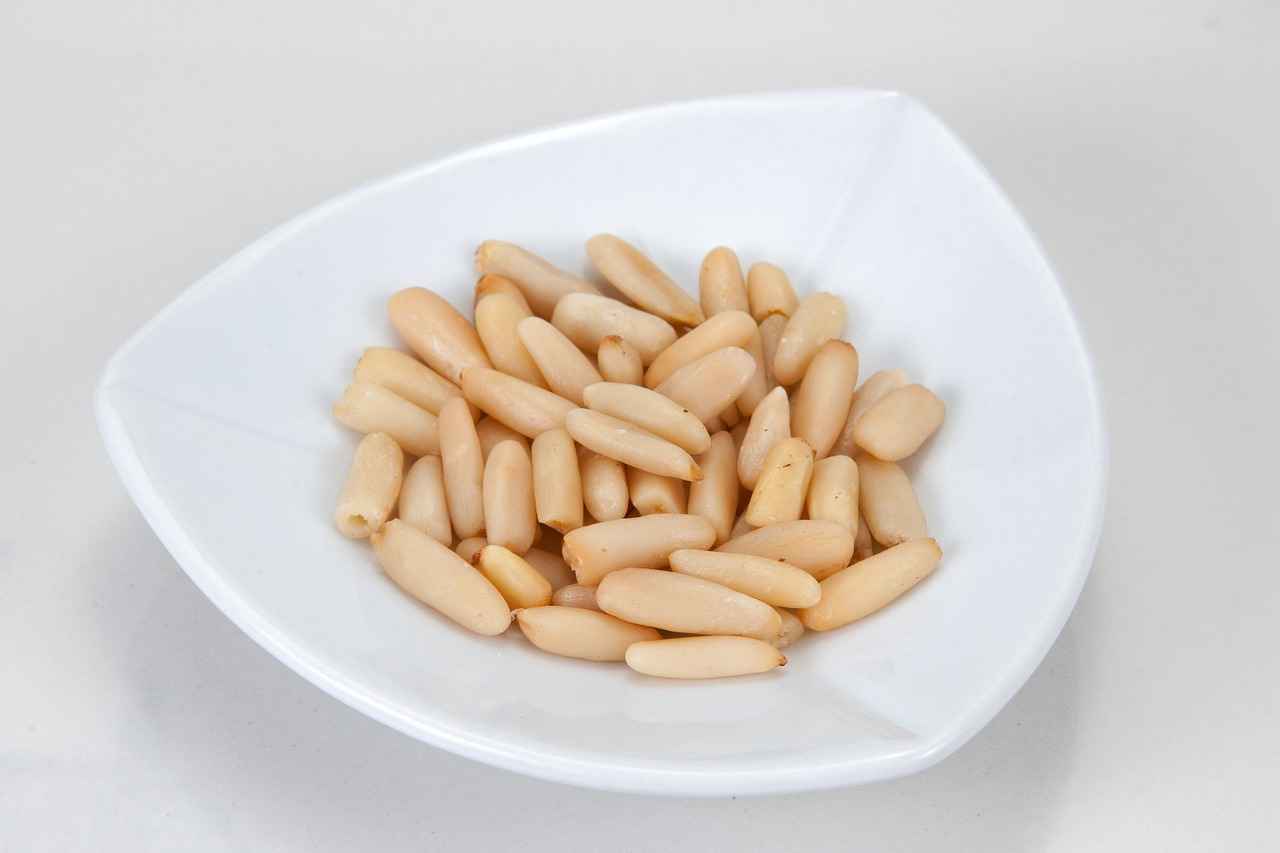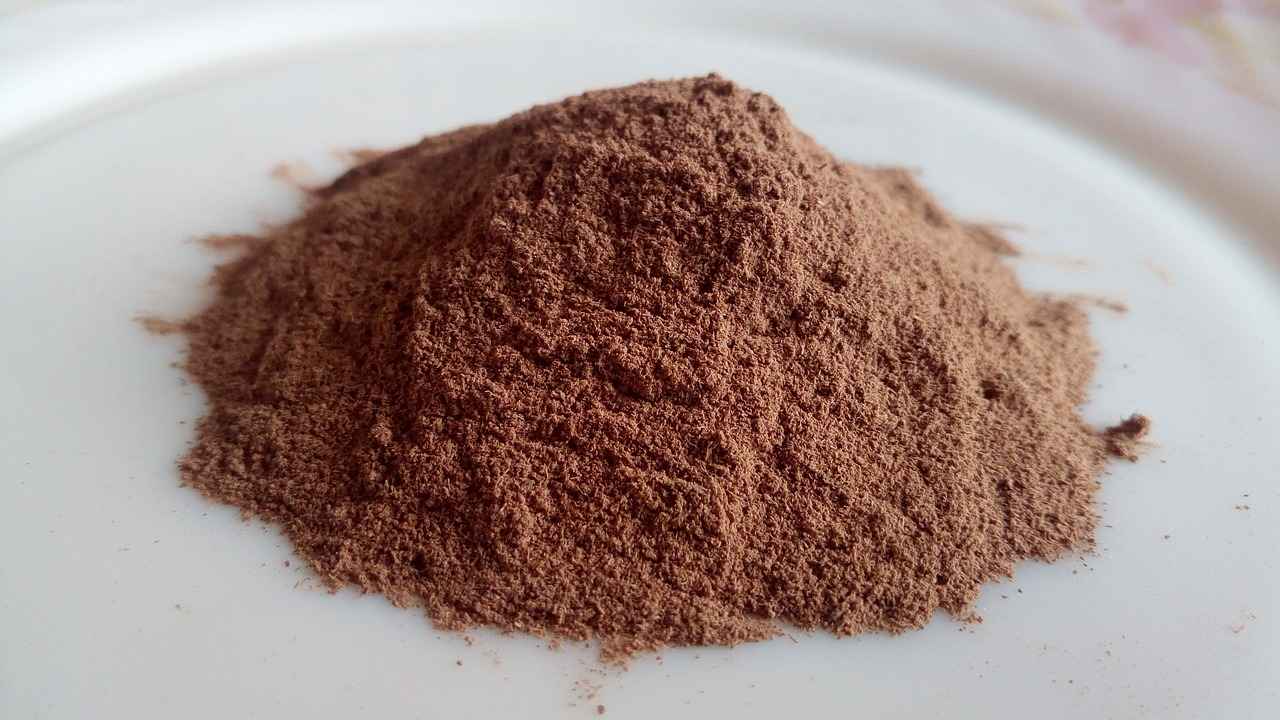This article delves into the remarkable anti-inflammatory properties of pine bark extract, examining its benefits, mechanisms, and applications in health and wellness.
What is Pine Bark Extract?
Pine bark extract is a natural supplement derived from the bark of the French maritime pine tree (Pinus pinaster). It is rich in antioxidants like proanthocyanidins, which contribute to its health benefits. Historically, this extract has been used in traditional medicine for its potential to promote well-being.
Health Benefits of Pine Bark Extract
- Anti-Inflammatory Effects: Pine bark extract is renowned for its ability to reduce inflammation throughout the body.
- Improved Circulation: It may enhance blood flow, which is vital for overall health.
- Skin Health: The extract has been linked to improved skin conditions, promoting a youthful appearance.
Reducing Inflammation
The primary focus of pine bark extract is its ability to reduce inflammation. The active compounds, particularly proanthocyanidins, work by inhibiting inflammatory pathways, thus alleviating symptoms associated with chronic inflammation.
Proanthocyanidins: The Active Compounds
Proanthocyanidins are powerful antioxidants found in pine bark extract. These compounds combat oxidative stress and inflammation in the body, contributing to overall health.
Clinical Studies Supporting Anti-Inflammatory Effects
Numerous clinical studies have demonstrated the anti-inflammatory properties of pine bark extract. Research indicates significant reductions in markers of inflammation, suggesting its potential in managing various inflammatory conditions.
How to Use Pine Bark Extract
Pine bark extract can be incorporated into your wellness routine through various forms, including capsules, powders, and topical applications. Dosage recommendations typically range from 50 to 300 mg per day, depending on the specific health goals.
Safety and Side Effects of Pine Bark Extract
While generally considered safe, it is essential to be aware of potential side effects, which may include headaches, dizziness, or gastrointestinal issues. Consulting with a healthcare professional before starting any new supplement is advisable, especially if you are taking other medications.
Conclusion: The Future of Pine Bark Extract in Health
In summary, pine bark extract holds significant promise for its anti-inflammatory properties and overall health benefits. Continued research is necessary to explore its full potential in integrative health practices.

What is Pine Bark Extract?
Pine bark extract, sourced from the inner bark of specific pine trees, is a natural supplement renowned for its exceptional health benefits. This extract is particularly rich in antioxidants, which play a crucial role in neutralizing harmful free radicals in the body. The origins of pine bark extract can be traced back to traditional medicinal practices, where it was utilized for its therapeutic properties. Its primary source, the French Maritime Pine (Pinus pinaster), is known for its high concentration of beneficial compounds.
The composition of pine bark extract includes a variety of bioactive compounds, with proanthocyanidins being the most prominent. These compounds are part of the flavonoid family and are recognized for their potent antioxidant and anti-inflammatory effects. In addition to proanthocyanidins, pine bark extract also contains other beneficial substances such as vitamin C, vitamin E, and phenolic acids, all contributing to its overall health-promoting properties.
Research has shown that pine bark extract can enhance circulation, support skin health, and improve overall wellness. Its ability to combat oxidative stress makes it a valuable addition to a health-conscious lifestyle. Furthermore, the extract is often used in various forms, including capsules, powders, and topical applications, making it accessible for a wide range of users.
As we continue to explore the potential of pine bark extract, it is clear that its rich composition and historical significance make it a noteworthy subject in the realm of natural supplements. The ongoing research into its health benefits promises to unveil even more about this remarkable extract.

Health Benefits of Pine Bark Extract
Pine bark extract is gaining recognition in the health and wellness community for its remarkable anti-inflammatory properties. This natural supplement, derived from the bark of certain pine trees, is packed with antioxidants and offers a myriad of health benefits that cater to both physical and skin health. In this section, we will explore the key advantages of pine bark extract, focusing on its ability to improve circulation and promote skin vitality.
One of the most significant benefits of pine bark extract is its role in enhancing circulation. The extract contains proanthocyanidins, which are known to strengthen blood vessels and improve blood flow. Enhanced circulation not only supports overall cardiovascular health but also aids in the efficient delivery of oxygen and nutrients to various body parts, fostering better energy levels and recovery.
Moreover, the anti-inflammatory effects of pine bark extract can be particularly beneficial for individuals suffering from conditions such as arthritis or chronic pain. By reducing inflammation, pine bark extract helps alleviate discomfort and improve mobility, making it a valuable addition to a holistic health regimen.
In addition to its circulatory benefits, pine bark extract is also celebrated for its positive impact on skin health. The antioxidants present in the extract help combat free radicals, which are notorious for accelerating the aging process. Regular use of pine bark extract can lead to improved skin elasticity, reduced wrinkles, and an overall more youthful appearance.
Furthermore, studies have indicated that pine bark extract can assist in managing skin conditions such as eczema and psoriasis by reducing inflammation and promoting healing. This makes it a versatile option for those seeking natural remedies for skin issues.
In conclusion, the health benefits of pine bark extract are extensive, particularly in terms of its anti-inflammatory properties. From improving circulation to enhancing skin health, this natural extract holds promise for individuals looking to boost their overall well-being. As always, it is advisable to consult with a healthcare professional before incorporating any new supplement into your routine.
Reducing Inflammation
The ability of pine bark extract to reduce inflammation is one of its most celebrated properties. This natural supplement, derived from the bark of the French maritime pine tree, contains a rich array of compounds that contribute to its potent anti-inflammatory effects. Understanding these compounds and their mechanisms is crucial for appreciating how pine bark extract can support overall health.
At the heart of pine bark extract’s anti-inflammatory prowess are proanthocyanidins, a class of flavonoids known for their powerful antioxidant properties. These compounds work by neutralizing free radicals in the body, which are unstable molecules that can cause oxidative stress and lead to inflammation. By combating oxidative stress, proanthocyanidins help to mitigate the inflammatory response, providing relief from various inflammatory conditions.
Research has shown that proanthocyanidins can inhibit the production of inflammatory cytokines, which are signaling molecules that promote inflammation. This inhibition helps to reduce swelling and pain associated with inflammatory diseases, such as arthritis and cardiovascular issues. Additionally, these compounds enhance the function of endothelial cells, improving blood circulation and further contributing to their anti-inflammatory effects.
| Compound | Mechanism of Action |
|---|---|
| Proanthocyanidins | Neutralize free radicals and inhibit inflammatory cytokines |
| Flavonoids | Reduce oxidative stress and support vascular health |
Clinical studies have consistently supported the anti-inflammatory benefits of pine bark extract. For instance, a study published in the Journal of Inflammation highlighted significant reductions in markers of inflammation among participants who supplemented with pine bark extract over a specified period. Such findings reinforce the potential of this natural remedy as a valuable addition to anti-inflammatory treatment regimens.
In conclusion, the anti-inflammatory properties of pine bark extract are primarily attributed to its rich content of proanthocyanidins and other flavonoids. Their ability to combat oxidative stress and inhibit inflammatory processes makes pine bark extract a promising option for those seeking natural solutions to manage inflammation and improve overall health.
Proanthocyanidins: The Active Compounds
Proanthocyanidins are a class of flavonoids that are primarily found in the extract of pine bark, notably from the species Pinus pinaster. These compounds are renowned for their potent antioxidant properties, which play a crucial role in combating oxidative stress in the body. Oxidative stress occurs when there is an imbalance between free radicals and antioxidants, leading to cellular damage and contributing to various chronic diseases.
One of the most significant benefits of proanthocyanidins is their ability to reduce inflammation. Inflammation is a natural response of the body to injury or infection; however, chronic inflammation can lead to serious health issues, including heart disease, diabetes, and arthritis. Proanthocyanidins work by inhibiting the production of pro-inflammatory cytokines and enzymes, thereby reducing the inflammatory response.
Furthermore, these compounds enhance the body’s natural defense mechanisms. They improve the function of endothelial cells, which line the blood vessels, promoting better circulation and reducing the risk of cardiovascular diseases. Studies have shown that individuals who consume proanthocyanidin-rich foods or supplements experience improved blood flow and lower blood pressure.
Additionally, proanthocyanidins possess the ability to scavenge free radicals, thus neutralizing their harmful effects. This antioxidant action not only protects cells from damage but also supports overall health by reducing the risk of chronic diseases associated with oxidative stress.
In summary, proanthocyanidins are vital active compounds found in pine bark extract, offering numerous health benefits through their antioxidant and anti-inflammatory properties. By incorporating pine bark extract into your wellness routine, you can harness these benefits to promote better health and well-being.
Clinical Studies Supporting Anti-Inflammatory Effects
Pine bark extract, particularly known for its rich content of proanthocyanidins, has been the subject of numerous clinical studies that highlight its significant anti-inflammatory properties. These studies suggest that pine bark extract can play a vital role in managing inflammation-related conditions, enhancing overall health and wellness.
One notable study published in the Journal of Inflammation demonstrated that participants taking pine bark extract experienced a marked reduction in inflammatory markers, such as C-reactive protein (CRP). This reduction indicates a potential for pine bark extract to assist in conditions characterized by chronic inflammation, such as arthritis and cardiovascular diseases.
Another research conducted by the University of Bordeaux found that the antioxidants in pine bark extract help to inhibit the production of inflammatory cytokines. This mechanism is crucial, as it suggests that the extract not only reduces existing inflammation but may also prevent future inflammatory responses. The study concluded that regular supplementation with pine bark extract could lead to long-term health benefits.
Furthermore, a systematic review of multiple clinical trials revealed that individuals who incorporated pine bark extract into their daily regimen reported improvements in joint pain and mobility. This finding underscores the extract’s potential as a natural alternative for those seeking relief from inflammatory conditions.
In summary, the clinical evidence supporting the anti-inflammatory effects of pine bark extract is compelling. As more studies emerge, it becomes increasingly clear that this natural supplement could be a valuable addition to health and wellness strategies, particularly for individuals dealing with chronic inflammation.
| Study | Findings |
|---|---|
| Journal of Inflammation | Reduction in CRP levels |
| University of Bordeaux | Inhibition of inflammatory cytokines |
| Systematic Review | Improvement in joint pain and mobility |
Skin Health and Pine Bark Extract
Pine bark extract is gaining recognition for its remarkable benefits to skin health. This natural extract, derived from the bark of certain pine trees, is rich in antioxidants, particularly proanthocyanidins, which play a crucial role in promoting a youthful appearance and improving various skin conditions.
One of the primary benefits of pine bark extract is its ability to combat oxidative stress. Oxidative stress occurs when there is an imbalance between free radicals and antioxidants in the body, leading to cellular damage and premature aging. The antioxidants present in pine bark extract help neutralize these free radicals, thereby protecting the skin from damage and promoting a healthier complexion.
Moreover, pine bark extract has been shown to enhance skin hydration. By improving the skin’s moisture retention, it can lead to a plumper and more vibrant appearance. This is particularly beneficial for individuals with dry or aging skin, as it helps to reduce the appearance of fine lines and wrinkles.
In addition to hydration, pine bark extract is known for its anti-inflammatory properties. It can help soothe skin irritations, reduce redness, and alleviate conditions such as eczema and psoriasis. By calming inflammation, pine bark extract contributes to an even skin tone and a more radiant complexion.
Furthermore, studies have indicated that pine bark extract may improve collagen production. Collagen is essential for maintaining skin elasticity and firmness. By boosting collagen levels, pine bark extract can help restore skin’s youthful appearance, making it a valuable addition to skincare regimens.
In conclusion, incorporating pine bark extract into your skincare routine offers numerous benefits, from enhancing hydration and reducing inflammation to promoting collagen production. As research continues to unveil its potential, this natural extract stands out as a powerful ally in achieving healthy, youthful skin.

How to Use Pine Bark Extract
Pine bark extract is a powerful supplement known for its numerous health benefits, particularly its anti-inflammatory properties. Incorporating it into your wellness routine can enhance your overall health. This section provides practical guidance on how to effectively use pine bark extract, including dosage recommendations and the various forms available.
- Capsules and Tablets: These are the most common forms of pine bark extract supplements. They offer a convenient way to consume the extract and are easily available in health stores and online.
- Powder: Pine bark extract powder can be mixed into smoothies, juices, or other beverages. This form allows for flexible dosing and is ideal for those who prefer not to take pills.
- Liquid Extracts: Liquid forms of pine bark extract are available and can be taken directly or added to drinks. They are often more concentrated, providing a higher dosage in smaller volumes.
When incorporating pine bark extract into your wellness routine, it is essential to consider the appropriate dosage. Most studies suggest a daily intake of 50-300 mg of pine bark extract, depending on the specific health benefits you are seeking. It is advisable to start with a lower dose and gradually increase it while monitoring your body’s response.
Before starting any new supplement, including pine bark extract, it is crucial to consult with a healthcare professional. They can provide personalized advice based on your health status and any medications you may be taking. This ensures that you use pine bark extract safely and effectively.
To maximize the benefits of pine bark extract, consider incorporating it into your daily routine. For example, you might take a capsule in the morning with breakfast, add the powder to your post-workout smoothie, or use the liquid extract in your evening herbal tea. Consistency is key to experiencing the full range of health benefits.
Pine Bark Extract Supplements
have gained popularity among health enthusiasts due to their potential benefits in supporting overall wellness. Derived from the bark of the Pinus pinaster tree, this extract is rich in proanthocyanidins, potent antioxidants that contribute to its health-promoting properties.
Various forms of pine bark extract supplements are available on the market, each offering unique advantages. Below, we explore the different types and their potential benefits for consumers.
| Type of Supplement | Description | Potential Benefits |
|---|---|---|
| Capsules | Convenient and easy to consume, capsules contain concentrated doses of pine bark extract. | May improve circulation, enhance skin health, and reduce inflammation. |
| Powder | Available in bulk, powder form can be mixed into smoothies or other beverages. | Offers flexibility in dosing and can be combined with other supplements. |
| Liquid Extract | Liquid forms are often more bioavailable, allowing for quicker absorption in the body. | May provide rapid relief from oxidative stress and inflammation. |
- Improved Circulation: Pine bark extract is known to enhance blood flow, benefiting cardiovascular health.
- Skin Health: The antioxidants in pine bark extract can help protect the skin from damage caused by UV rays and pollution.
- Joint Support: Many users report reduced joint pain and stiffness, making it a popular choice for those with arthritis.
When considering pine bark extract supplements, it’s essential to choose high-quality products from reputable brands. Consulting with a healthcare professional can also help ensure that these supplements fit well within your wellness routine. Overall, the diverse range of pine bark extract supplements available allows consumers to select the best option for their individual health needs.
Dietary Sources of Pine Bark Extract
In addition to supplements, there are various dietary sources that may contain beneficial compounds similar to those found in pine bark extract. These foods can offer anti-inflammatory and antioxidant properties, enhancing overall health. Below, we explore some key dietary sources and their advantages.
- Dark Chocolate: Rich in flavonoids, dark chocolate provides antioxidants that help reduce inflammation and promote heart health.
- Fruits and Berries: Fruits such as blueberries, blackberries, and grapes are high in polyphenols, which can mimic the effects of pine bark extract by combating oxidative stress.
- Green Tea: This beverage is loaded with catechins, a type of antioxidant that can support cardiovascular health and reduce inflammation.
- Red Wine: In moderation, red wine contains resveratrol, which has been linked to anti-inflammatory effects and improved circulation.
- Spices: Certain spices like turmeric and ginger are known for their potent anti-inflammatory properties and can be easily incorporated into meals.
Including these foods in your diet can enhance the benefits typically associated with pine bark extract. They not only provide essential nutrients but also contribute to a holistic approach to health.
In conclusion, while pine bark extract supplements offer concentrated benefits, incorporating these dietary sources can provide a natural way to support your body’s anti-inflammatory processes. A balanced diet rich in these foods may complement the effects of supplements, leading to improved overall well-being.

Safety and Side Effects of Pine Bark Extract
Pine bark extract, while generally regarded as safe for most individuals, can lead to certain side effects and may interact with various medications. It is essential to understand these aspects to ensure safe usage and maximize the benefits of this natural supplement.
Understanding Possible Side Effects
- Gastrointestinal Issues: Some users have reported mild gastrointestinal discomfort, including nausea, diarrhea, or stomach cramps.
- Allergic Reactions: In rare cases, individuals may experience allergic responses, such as skin rashes or itching.
- Headaches: A small number of users have noted headaches as a potential side effect.
To mitigate these side effects, it is advisable to start with a lower dosage and gradually increase it as tolerated. Consulting with a healthcare provider before starting any new supplement is always recommended.
Interactions with Medications
Certain medications may interact with pine bark extract, potentially altering their effectiveness or increasing the risk of side effects. It is particularly important to be cautious if you are taking:
- Anticoagulants: Pine bark extract may enhance the effects of blood-thinning medications, increasing the risk of bleeding.
- Diabetes Medications: This extract may lower blood sugar levels, which could interact with diabetes treatments.
- Immunosuppressants: As it may affect the immune response, caution is advised for those on immunosuppressive therapies.
Always consult with a healthcare professional before combining pine bark extract with other medications to avoid any potential complications.
Conclusion
In summary, while pine bark extract offers numerous health benefits, it is crucial to be aware of its potential side effects and drug interactions. Taking appropriate precautions and seeking professional advice can help ensure a safe and effective experience with this supplement.
Possible Side Effects
Understanding the potential side effects of pine bark extract is crucial for anyone considering its use. While this natural supplement is widely praised for its numerous health benefits, it is equally important to be aware of possible adverse reactions that may occur.
Pine bark extract, derived from the bark of the French maritime pine tree, is rich in proanthocyanidins, which are powerful antioxidants. However, like any supplement, it can lead to side effects in some individuals. Below are common reactions associated with pine bark extract:
- Gastrointestinal Issues: Some users may experience stomach upset, nausea, or diarrhea. To mitigate these effects, it is recommended to take the extract with food.
- Allergic Reactions: Although rare, allergic reactions such as skin rashes or itching may occur. If you notice any of these symptoms, discontinue use immediately and consult a healthcare professional.
- Headaches: A small number of individuals have reported headaches after taking pine bark extract. Staying hydrated and adjusting the dosage may help alleviate this issue.
- Interactions with Medications: Pine bark extract may interact with certain medications, particularly blood thinners and antihypertensive drugs. It is essential to consult with a healthcare provider before starting the supplement.
To minimize the risk of side effects, it is advisable to start with a lower dosage and gradually increase it as tolerated. Additionally, maintaining open communication with a healthcare professional can help ensure safe usage.
In conclusion, while pine bark extract offers significant health benefits, being informed about its potential side effects is just as important. Understanding your body’s reactions and consulting with healthcare professionals can enhance your experience with this powerful supplement.
Interactions with Medications
Pine bark extract, known for its numerous health benefits, particularly its anti-inflammatory properties, is becoming increasingly popular as a dietary supplement. However, it is essential to recognize that certain medications may interact with this natural extract, potentially altering its effects or leading to adverse reactions.
Among the medications that may interact with pine bark extract are:
- Anticoagulants: These blood thinners, such as warfarin, may have their effects enhanced by pine bark extract, increasing the risk of bleeding.
- Antidepressants: Some studies suggest that pine bark extract could interact with selective serotonin reuptake inhibitors (SSRIs), potentially affecting serotonin levels.
- Diabetes Medications: Pine bark extract may lower blood sugar levels, which could lead to hypoglycemia when combined with diabetes medications.
- Immunosuppressants: For individuals on medications that suppress the immune system, such as corticosteroids, caution is advised as pine bark extract may stimulate immune function.
Given the potential for these interactions, it is crucial to consult with a healthcare professional before starting pine bark extract, especially if you are currently taking any medications. A healthcare provider can provide personalized advice, ensuring that the benefits of pine bark extract can be enjoyed safely.
Furthermore, it is essential to disclose all supplements and medications you are currently taking during your healthcare consultations. This transparency allows for better management of any potential interactions and helps in formulating a comprehensive health plan tailored to your needs.
In conclusion, while pine bark extract offers various health benefits, understanding its interactions with medications is vital for safe use. Always prioritize professional guidance to maximize your health outcomes.

Conclusion: The Future of Pine Bark Extract in Health
In recent years, pine bark extract has gained considerable attention in the health and wellness community, primarily due to its remarkable anti-inflammatory properties and a host of other health benefits. As research continues to unfold, this natural extract is being recognized not only for its traditional uses but also for its potential applications in modern integrative health practices.
One of the most significant aspects of pine bark extract is its ability to combat inflammation, which is a common underlying factor in many chronic diseases. Studies have shown that the active compounds in pine bark extract, particularly proanthocyanidins, play a crucial role in reducing oxidative stress and inflammation within the body. This mechanism not only helps alleviate symptoms of various inflammatory conditions but also supports overall health.
Moreover, the extract’s benefits extend beyond inflammation. It has been linked to improved circulation, enhanced skin health, and even cognitive benefits. As a result, there is a growing interest in incorporating pine bark extract into daily wellness routines, whether through supplements or dietary sources.
Looking ahead, the future of pine bark extract in health seems promising. Ongoing research is likely to uncover even more benefits and applications, paving the way for its inclusion in preventive health strategies. Furthermore, as the demand for natural health solutions increases, pine bark extract may become a staple in integrative health practices, offering a holistic approach to wellness.
In conclusion, while the current understanding of pine bark extract’s health benefits is already impressive, the potential for future discoveries and applications is vast. Continued research will be essential in fully realizing its capabilities and ensuring its safe and effective use in health.













